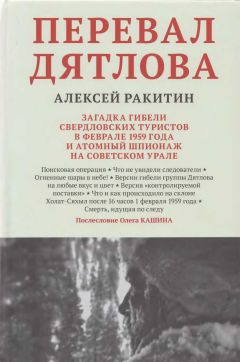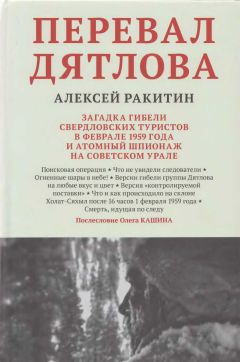Анджела Стент - Почему Америка и Россия не слышат друг друга? Взгляд Вашингтона на новейшую историю российско-американских отношений
Asmus, Ronald. Opening NATO’s Door. Washington DC: Council on Foreign Relations, 2004.
Baker, James. The Politics of Diplomacy. New York: Putnam,1995.
Baker, Peter, and Susan Glasser. Kremlin Rising. New York: Simon and Schuster, 2005.
Balzer, Harley. “Vladimir Putin’s Academic Writings and Russian Natural Resource Policy.” Problems of Post-Communism 58, no. 1 (January – February, 2006): 48–54.
Berliner, Joseph. Factory and Manager in the USSR. Cambridge, MA: Harvard University Press, 1957.
Bolton, John. Surrender Is Not an Option. New York: Simon and Schuster, 2008.
Borgerson, Scott. “The Scramble for the Arctic.” Foreign Affairs 87 (March – April 2008). http://www.foreignaffairs.com/articles/63222/scott-g-borgerson/arctic-meltdown.
Bumiller, Elizabeth. Condoleezza Rice: An American Life. New York: Random House, 2007.
Bush, George W. Decision Points. New York: Crown Publishers, 2011. (Буш Дж. Ключевые решения. М.: Олма Медиа Групп, 2011.)
Bush, George W. Newsmaker Interview. Newshour with Jim Lehrer, February 16, 2000. Edited by Jim Lehrer. www.pbs.org/newshour/bb/election/jan-june00/bush_2-16.html.
Bush, George W. Speech at International Republican Institute, May 18, 2005. http://connection.ebscohost.com/c/speeches/17275067/remarks-international-republican-institute-dinner.
Bush, George, and Brent Scowcroft. A World Transformed. New York: Vintage Books, 1999. (Буш Дж., Скоукрофт Б. Мир стал другим. М.: Международные отношения, 2004.)
Charap, Samuel. Assessing the “Reset” and the Next Steps for U.S. Russian-Relations. Washington, DC: Policy Center for American Progress, 2010.
Cheney, Dick. In My Time. New York: Threshold Editions, 2012.
Clinton, Bill. My Life. New York: Vintage, 2005. (Клинтон Б. Моя жизнь. М.: Альпина Паблишер, 2005.)
Cohen, Stephen. Failed Crusade: America and the Tragedy of Post-Communist Russia. New York: Norton 2001.
Cohen, Stephen. Soviet Fates and Lost Alternatives. New York: Columbia University Press, 2009.
Coll, Steven. Ghost Wars. New York: Penguin Press, 2004.
Collina, Tom. “The Lisbon Protocol at a Glance.” Arms Control Association. http://www.armscontrol.org/print/3289. Commission on Security and Cooperation in Europe. Lessons of “The Tulip Revolution”: Kyrgyzstan’s Revolution; Causes and Consequences. 2005. Cooley, Alexander. Great Games, Local Rules. New York: Oxford University Press, 2012.
Cordesman, Anthony, and Adam Seitz. Iranian Weapons of Mass Destruction. Washington, DC: Center for Strategic and International Studies, 2009.
Council on Foreign Defense Policy. US-Russian Relations at the Turn of the Century. Washington, DC: Carnegie Endowment for International Peace, 2000.
Daalder, Ivo. Getting to Dayton: The Making of America’s Bosnia Policy. Washington, DC: Brookings Institution Press, 2000.
D’Anieri, Paul, ed. Orange Revolution and Aftermath: Mobilization, Apathy and the State in Ukraine. Washington, DC: Woodrow Wilson Center Press, 2010.
Federov, Yury. “Russian Policy on Iran.” World Today 63, no. 2 (February 2007): 4–6.
Fitzpatrick, Mark. “Iran and North Korea: The Proliferation Nexus.” Survival 48, no. 1 (2006): 70.
Francois, Isabelle. Whither the Medvedev Initiative on European Security? Washington, DC: National Defense University, 2011.
Freeland, Chrystia. Sale of the Century: The Inside Story of the Second Russian Revolution. London: Abacus, 2006.
Gaddy, Clifford D., and Barry W. Ickes. “Russia after the Global Financial Crisis.” Eurasian Geography and Economics 51, no. 3 (2010): 281–311.
Gaidar, Yegor. Collapse of an Empire. Washington, DC: Brookings Institution Press, 2007. (Гайдар Е. Гибель империи. Уроки для современной России. М.: Corpus, 2012.)
Gates, Robert. From the Shadows. New York: Simon and Schuster, 1996.
Gessen, Masha. The Man without a Face. New York: Penguin, 2013.
Global Trends, 2015: A Dialogue about the Future with Nongovernment Experts. Washington, DC: National Intelligence Council, 2000.
Goldfarb, Alexander, and Maria Litvinenko. Death of a Dissident. New York: Free Press, 2007.
Goldgeier, James, and Michael McFaul. Power and Purpose: U.S. Policy toward Russia after the Cold War. Washington, DC: Brookings Institution Press, 2003.
Goldman, Marshall. Petrostate: Putin, Power and the New Russia. Oxford: Oxford University Press, 2007.
Guseinov, Vagif, Alexei Denisov, and Alexander Goncharenko. “The Evolution of the Global Energy Market.” Russia Global Affairs 5, no. 1 (2007): 8–24.
Gustafson, Thane. Capitalism Russian Style. Cambridge: Cambridge University Press, 1999.
Gustafson, Thane. Wheel of Fortune: The Battle for Oil and Power in Russia. Cambridge, MA: Harvard University Press 2012.
Harding, Luke. Mafia State. London: Guardian Books, 2011.
Hill, Fiona, and Clifford D. Gaddy. Mr. Putin: Operative in the Kremlin. Washington, DC: Brookings Institution Press, 2013.
Hoffman, David E. The Oligarchs: Wealth and Power in the New Russia. New York: Public Affairs, 2002. (Хоффман Д. Олигархи. Богатство и власть в новой России. М.: Corpus, 2010.)
Holbrooke, Richard. To End a War. New York: Modern Library 1999.
Ivanov, Igor. The New Russian Diplomacy. Washington, DC: Brookings Institution Press, 2000. (Иванов И. Новая российская дипломатия. Десять лет внешней политики страны. М.: Олма-Пресс, 2002.)
Jack, Andrew. Inside Putin’s Russia. Oxford: Oxford University Press, 2004.
Katz, Mark. “Iran and Russia.” In The Iran Primer: Power, Politics, and U.S. Policy, edited by Robin Wright, pp. 186–190. Washington, DC: United States Institute of Peace, 2010.
Keenan, Edward. “Moscovite Political Folkways.” Russian Review 45 (1986): 125–181.
Khlopkov, Anton, and Anna Lutkova. “The Bushehr NPP: Why Did It Take So Long?” Center for Energy and Security Studies, no. 20 (August 21, 2010).
King, Charles. “The Benefits of Ethnic War.” World Politics 53, no. 4 (July 2001): 524–552.
King, Charles. The Ghost of Freedom. New York: Oxford University Press, 2008.
Klein, Margarete. Russland und der Arabische Fruehling. Berlin: SWP Aktuelle, 2012.
Klein, Margarete, and Solvieg Richter. Russland und die euro-atlantsiche Sicherheitsordung. Berlin: SWP-Studie December 2011.
Kravtsev, Ivan. “Russia’s Post-Orange Empire.” Open Democracy, http://www.opendemocracy.net/2947.
Kuchins, Andrew, and Anders Aslund. The Russia Balance Sheet. Washington, DC: Peterson Institute for International Economics, 2009.
Larsson, Robert. Russia’s Energy Policy: Security Dimensions and Russia’s Reliability as an Energy Supplier. Stockholm: Swedish Defense Research Agency, 2006.
Litwak, Robert S. “Living with Ambiguity: Nuclear Deals with Iran and North Korea.” Survival 50, no. 1 (February – March, 2008): 91–118.
Lo, Bobo. “Evolution or Regression? Russian Foreign Policy in Putin’s Second Term.” In Towards a Post-Putin Russia, edited by H. Blakkisrud. Oslo: Norwegian International Affairs, 2006.
Lo, Bobo. Russia’s Crisis – What It Means for Regime Stability and Moscow’s Relations with the Word. Policy Brief. London: Center for European Reform, 2009.
Lynch, Allen. Vladimir Putin and Russian Statecraft. Washington, DC: Potomac Books, 2011.
Mann, James. The Rise of the Vulcans. New York: Penguin Press, 2004.
Matlock, Jack. Autopsy on an Empire: The American Ambassador’s Account of the Collapse of the Soviet Union. New York: Random House, 1995. (Мэтлок Дж. Смерть Империи. Взгляд американского посла на распад Советского Союза. М.: «Рудомино», 2003.)
Matlock, Jack. Superpower Illusions. New Haven: Yale University Press, 2010. (Мэтлок Дж. Сверхдержавные иллюзии. Как мифы и ложные идеи завели Америку не в ту сторону – и как вернуться в реальность. М.: Международные отношения, 2011.)
McGlinchey, Eric. “Autocrats, Islamists and the Rise of Radicalism in Central Asia.” Current History (October 2005): 336–342.
Medvedev, Dmitry. “Russia-U.S. Relations and Russia’s Vision for International Affairs.” Speech at Brookings Institution, April 13, 2010. www.brookings.edu/media/events/2010/4/13 /medvedev/20100413/pdf.
Mitchell, Lincoln. The Color Revolutions. Philadelphia: University of Pennsylvania Press, 2012.
National Intelligence Council. Global Trends, 2015: A Dialogue about the Future with Nongovernmental Experts. Washington, DC, December 2000.
NATO. Agreement on Basic Principles Governing Relations among NATO-Russia Council Member States in Security Sphere. Brussels, 2009.
NATO. Bucharest Summit Declaration. Brussels, 2008.
NATO. Meeting of the North Atlantic Council at the Level of Foreign Ministers Held at NATO Headquarters. Brussels, 2009.
NATO. “Prague Summit Declaration.” Press release. November 21, 2002.
NATO. Strategic Concept for the Defense and Security of the Members of the North Atlantic Treaty Organization. Brussels, 2010.
Nicholl, Jim. Central Asia: Regional Developments and Implications for US Interests. Washington, DC: Congressional Research Service, 2012.
Obama, Barack. The Audacity of Hope. New York: Vintage, 2006. (Обама Б. Дерзость надежды. М.: Азбука-классика, 2008.)
Obama, Barack. “Inaugural Address by President Barack Obama.” The White House. http://www.whitehouse.gov/the-press-office/2013/01/21/inaugural-address-president-barack-obama.
Obama, Barack. “Second Inaugural Address.” The White House, 2013. http://www.whitehouse.gov/the-press-office/2013/01/21/inaugural-address-president-barack-obama.
O’Neill, Jim. Building Better Global Economic BRICs. New York: Goldman, Sachs, 2001.
Pifer, Steven. The Next Round: The United States and Nuclear Arms Reductions after New START. Washington, DC: Brookings Institution Press, 2010.
Pillar, Paul. “Intelligence, Policy and the War in Iraq.” Foreign Affairs 26 (March – April, 2006).
Primakov, Evgeny. A World Challenged. Washington, DC: Brookings Institution Press, 2004.
Putin, Vladimir. First Person. New York: Public Affairs, 2000. (Геворкян Н., Колесников А., Тимакова Н. От первого лица. Разговоры с Владимиром Путиным. М.: Вагриус, 2000).
Putin, Russia and the West. TV film. Directed by Paul Mitchell and David Alter. BBC, 2011.
Rahr, Alexander. Wladimir Putin: Der “Deutsche” im Kreml. Munich: Universitaets Verlag, 2000.
Reddaway, Peter, and Dmitri Glinsky. The Tragedy of Russia’s Reforms. Washington, DC: Carnegie Endowment for International Peace, 2001.
Rice, Condoleezza. Extraordinary, Ordinary People. New York: Crown Archetype, Random House, 2010.
Rice, Condoleezza. No Higher Honor. New York: Random House, 2011.
Rice, Condoleezza. “Promoting the National Interest.” Foreign Affairs 79, no. 1 (2000): 45–62.
Roxburgh, Angus. The Strongman in the Kremlin: Vladimir Putin and the Struggle for Russia. London: I. B. Taurus.
Ruehe, Volker. “America and Europe: Common Challenges and Common Answers.” Speech at Georgetown University, March 2, 1993.
Rumer, Eugene. Russian Foreign Policy beyond Putin. Adelphi Paper. London: Routledge, 2007.
Rumer, Eugene, and Angela Stent. Repairing U.S.-Russian Relations: A Long Road Ahead. Washington, DC: Institute for National Strategic Studies and Georgetown University, 2009.
Rumer, Eugene, and Celeste Wallander, eds., Russia Watch: Essays in Honor of George Kolt. Washington, DC: CSIS Press, 2007.
Rumsfeld, Donald. Known and Unknown. New York: Penguin, 2011.
Russia and Eurasia Working Group. Policy Memos 1, 2, and 4, 2008. Memos in author’s possession.
Russia and the World, 2025. Geneva: World Economic Forum, 2005.
Russia: The Impact of Climate Change to 2030. Washington, DC: National Intelligence Council, 2009.
Sarotte, Mary Elise. 1989: The Struggle to Create Post – Cold War Europe. Princeton: Princeton University Press, 2009.
Schroeder, Gertrude, and Philip Hanson. The System versus Progress: Soviet Economic Problems. London: Centre for Research into Communist Economies, 1986.
Sestanovich, Steven. “At Odds with Iran and Iraq: Can the United States and Russia Resolve Their Differences?” Washington, DC: Century Foundation and Stanley Foundation, 2003.
Sestanovich, Steven. “Where Does Russia Belong?” National Interest 62 (Winter 2000–2001).



